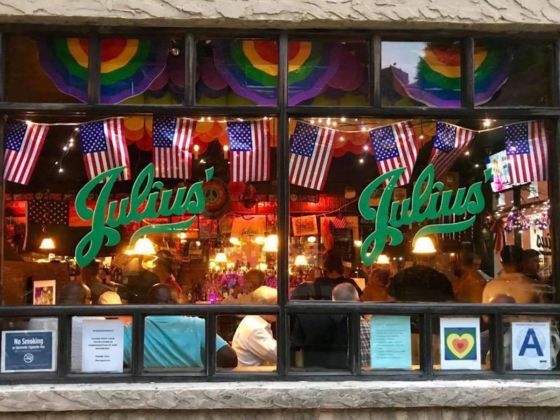Three gay men walk into a bar.
Laughable, no? As many states move to prohibit bars and restaurants from serving customers indoors to prevent the spread of COVID-19, it may seem so. But this isn’t a story about our present — it’s a story about our past. More specifically, it’s about the events of April 22, 1966, when three men enter Julius’ — now a divey watering hole in Manhattan’s West Village — and engage in an entirely different type of defiance.
